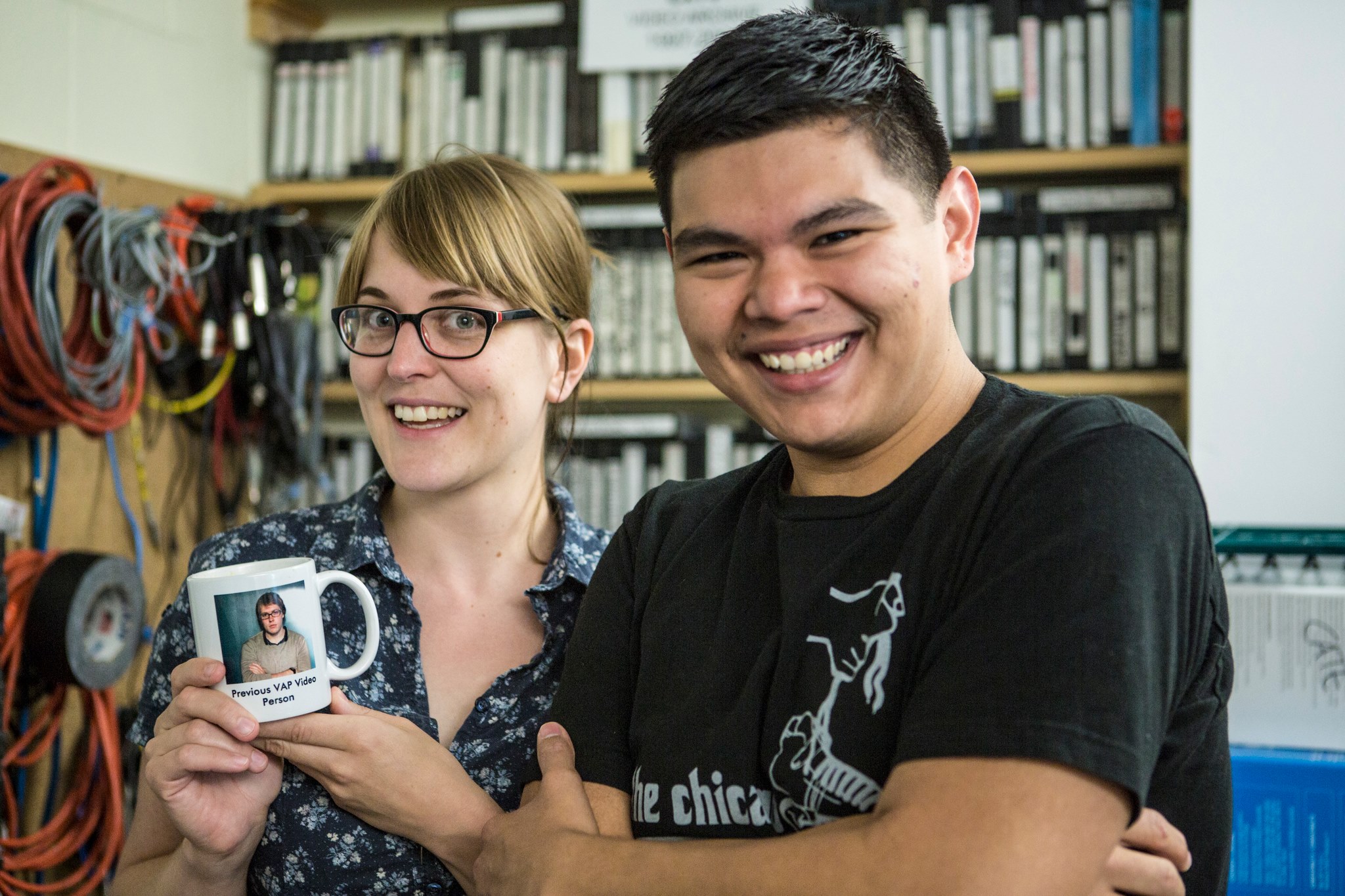AL: In CAW’s first guest post on Bad At Sports, you both discussed Lori Waxman’s early 2013 workshop at Gallery 400. You stated that “Technology has changed and art has changed, and that should be radically impacting the kind of art criticism that we write, how it gets published, how it gets received and who we write it for, and how it gets commented on.” How is that belief contextualized within CAW’s framework?
JL & SL: By urging artists to undertake the role of the critic, we hope to open up the determined, confident voices and muscular feedback often heard in bars after openings and class critiques to a more public forum. During her lecture, Lori mentioned the dwindling number of platforms for experimental criticism; she said she thought no one would publish a review she wrote of her husband’s work, “except maybe you guys” (a strategy she proposed as embedded criticism). CAW’s acceptance and encouragement of alternative formats for reviews, like Josh Reames’ recipe or James Pepper Kelly’s recent acrostic, with the explicit stated goal of providing feedback to Chicago’s alternative arts activity is where CAW most closely resembles Lori’s thesis.
AL: What challenges has the program faced since that inaugural December 2012 Bad at Sports interview?
JL & SL: There is a pedagogic aspect to CAW that is difficult to make visible. Often, reviews go through a half dozen rounds of editing. Many of our writers are approaching formal or experimental criticism written for the public for the first time. Just like any artist, our writers are going through their own personal arcs of progress and complexity, and we feel that the big reward is when a given artist/writer, as a returning contributor, incrementally writes reviews with greater and greater depth and complexity — pieces that contextualize the work not just in Chicago or nationally, but in the flux of contemporary global art discourse.
Second, writing is time intensive and, for the time being in our project, uncompensated. Finding willing writers is occasionally hard because critical writing can feel like a distraction from your individual practice or sometimes a conflict of interest in an arts ecology such as Chicago’s. It is our experience that taking on formal writing about the practice of others is invaluable; it creates a reflexivity that, as an artist, is comparable to cash in your pocket. Writing is, as Lori Waxman pointed out in her workshop, a process that turns a lot of half-formed ideas about what’s happening around you to fully fledged, substantiated thoughts that are a form of deep learning and development.
More information about Chicago Artist Writers, as well as their submission procedures, can be found on their website






